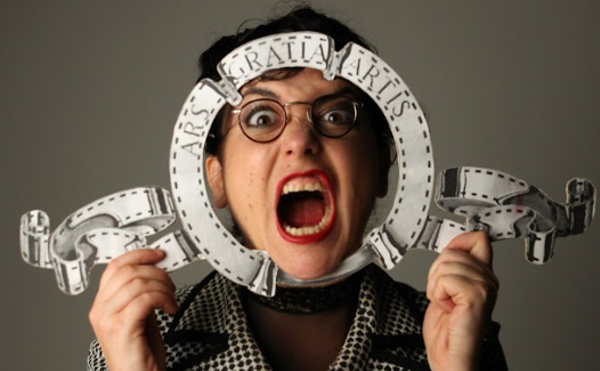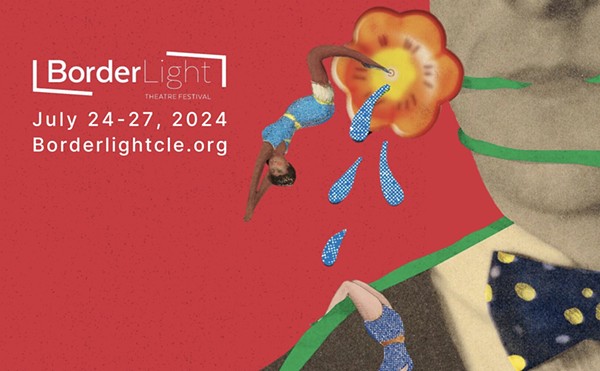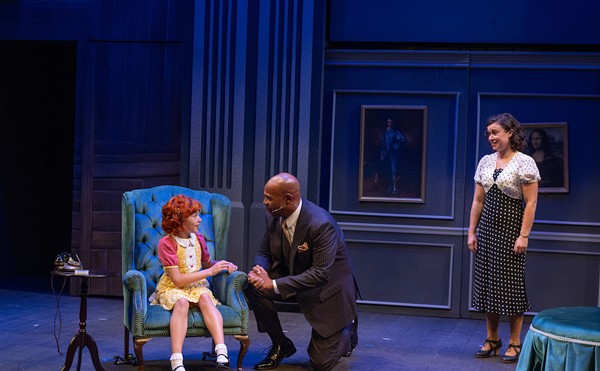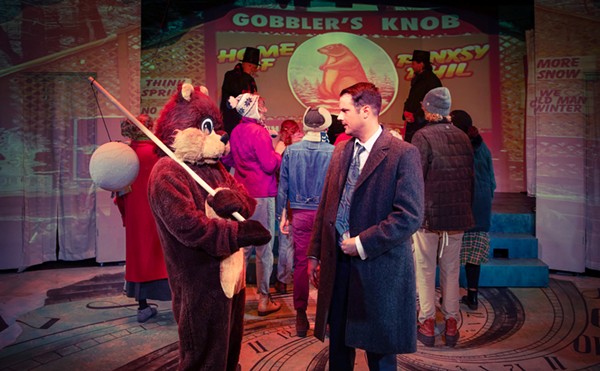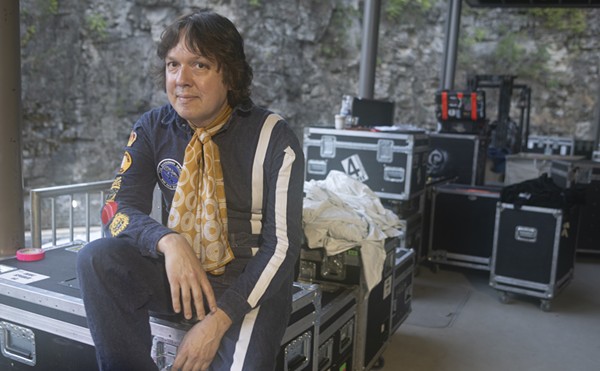This high-powered musical wedding of African oppression to tap dancing was conceived by George C. Wolfe, New York's latest wunderkind--equal parts wizard, impresario, and visionary. He has the rare knack of being simultaneously artsy and commercial. As of late, he has managed to fill Joseph Papp's huge boots at the New York Public Theater while simultaneously whipping up a couple of commercially lucrative musical extravaganzas (and, alas, a flop revival of On the Town).
Like the recent Stomp! and Lord of the Dance, this revue uses nuclear fission-powered song-and-dance numbers, coated in urban ethnicity to give the audience a new-age high. In an era that has run short on finances for Phantom extravaganzas and skill for sophisticated book musicals, Bring in 'da Noise serves as an amiable substitute.
Imagine an updated, flesh-and-blood Fantasia with plenty of attitude. Instead of the animated film's playful soundtrack, there is "Da Beat"--played on Broadway by dance sensation Savion Glover, who metaphorically set the house on fire. "Da Beat" is the dancing fool who leads the audience through the show's history. Mickey Mouse, the terpsichorean mushrooms, hippos, and satyrs have been given the heave-ho, replaced by a company of hyperactive, musclebound high-steppers. They have dreadlocks out of Our Gang and baggy gym clothes out of any urban high school. The equivalent of animated Play-Doh, they are vividly colored and can take on any form. No matter what roles they are acting, they seem ready to somersault, split, and tap themselves into the Guinness Book of World Records.
As the show's jazz oracle, there is Debra Byrd, who adds context and counterpoint to the dance history. With a Nell Carter voice, she sings an unearthly accompaniment: slave laments, lost Harlem riffs and ballads, and speakeasy sass. The music, by Daryl Waters and Zane Mark, is a ghostly approximation of period styles. The hard-to-grasp lyrics zoom out like Ella Fitzgerald scat.
Wolfe pegs the show on the triumph of dance. Slides detail how evil white masters have forbidden slaves to use their drums to communicate. Stylized movement becomes the replacement--a new form of interaction, a homegrown remedy for the blues. In a musical equivalent of one of August Wilson's brooding history plays, there are dispossessed southerners tapping on a train up North and invigorating ragtime celebrations. In a scene that evokes Metropolis, workers dance as mechanized cogs in a mill. There are hot escapes from oppression in speakeasies and a jubilant tap orgy in an alley, where a group of freshly liberated black men seem to be tapping joyfully into the millennium.
For the hip-hop impaired and the politically uncorrected, Bring in 'da Noise offers vintage venom in the "Now That's Tap" section, devoted to the sassy domestics and other stereotypes of Hollywood's heyday: the Nicholas Brothers as Grin and Flash--two dancers in top hats and white tails, trying their darnedest to look debonair while performing groin-straining splits.
The most inspired blow to those who dwell in a cocoon of quaint Hollywood tykes is the "Uncle Huck-a-Buck" song, during which a saucer-eyed Bill "Bojangles" Robinson, with white cotton hair and a grin, merrily buck-and-wings it up and down a plantation staircase in a clown suit. Suddenly there appears a monstrously peaches-and-cream Shirley Temple doll, strapped to a dancer's leg so it looks like she's dancing. It's a duel to the death to see who can be the most cloying, as they tap up and down, with little Shirley getting the final thrust when she asks with a simper: "Why do I get paid more than you do?"Invariably, Bring in 'da Noise fills a lot of bills for those who thrive on visceral energy, rejoice in the triumph of the human spirit (especially when it involves tap shoes), and like to see old Hollywood stereotypes thrown back in white devils' faces. And, ultimately, it's for those who subscribe to the philosophy of Al Jolson, one of the few performers who made a career out of straddling the color line by playing both white and black: "When you have a melancholy case of the blues, go into your dance!"
Bring in 'da Noise, Bring in 'da Funk, through March 21 at the Palace Theatre, 1501 Euclid Avenue, 216-241-6000.



